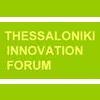The objective of the meeting was to establish a forum for acknowledging, discussing and assessing in a round table initiatives for the support and promotion of innovation that agencies of Central Macedonia have undertaken to date, with the utter aim to agree on a timetable for next steps. Minister Bolaris of the Ministry of Economy, Competitiveness and Shipping saluted the event through his representative along with Ms. Mary Lioni, General Secretary of the Region of Central Macedonia, who actively participated in the discussion and question and answer session on the regional initiatives.
The forum was kick-started with speeches from key local innovation actors such as the Federation of Industries of Northern Greece, the Regional Innovation Pole of Central Macedonia and the Alexandrian Innovation Zone of Thessaloniki. Other guests from the Centre for Research and Technology Hellas, the Thessaloniki Technology Park, the Association of IT Industries of Northern Greece, from local incubators (i.e. i4G) and academic institutions (Aristotle University of Thessaloniki and University of Macedonia) contributed to the roundtable discussion that followed the presentations by expressing views on how to strengthen the capacity to develop knowledge and innovation via a common action plan that involves key local and regional stakeholders.
Nikos Zaharis expressed SEERC’s position by referring to the trends and the weaknesses as arising from current innovation initiatives as well as to a set of recommendations for the future, based on lessons learned. According to Mr. Zaharis, some of the weaknesses that have been noted in the course of past initiatives are (indicatively):
- The occasionally ineffective communication between the academic/research and business community. This was often accompanied by a lack of understanding of business initiatives on the part of the academic institutions as well as an underestimation of the scientific potential of certain academic initiatives on the part of businesses, which created problems in identifying funds.
- Weak presence of venture capitals and availability of seed funds.
- Lack of substantial progress in terms of key indicators of innovation such as Intellectual Property, high-tech employment, new product development.
Mr. Zaharis proceeded with a set of recommendations, among which were the need for common interventions integrating action for the business and academic community, the decentralization of planning so that regional realities, and particularly the Central Macedonia reality, are better reflected in funding programmes, a stronger promotion of entrepreneurial spirit in schools and universities and the fostering of the valorization of Intellectual Property rights.
All this could be facilitated, he said, by fortifying the networking between agencies operating under the umbrella of the Region of Central Macedonia and more importantly, by creating a separate, sustainable mechanism for effective mediation between the academic and business community, able to reflect and accommodate needs of both sides, ready to invest on high-tech knowhow and specialization and to play a substantial role in converting innovative ideas to concrete outputs and business initiatives.
For the full text of SEERC’s positioning (available in Greek), please send an e-mail with your request at: This email address is being protected from spambots. You need JavaScript enabled to view it.





